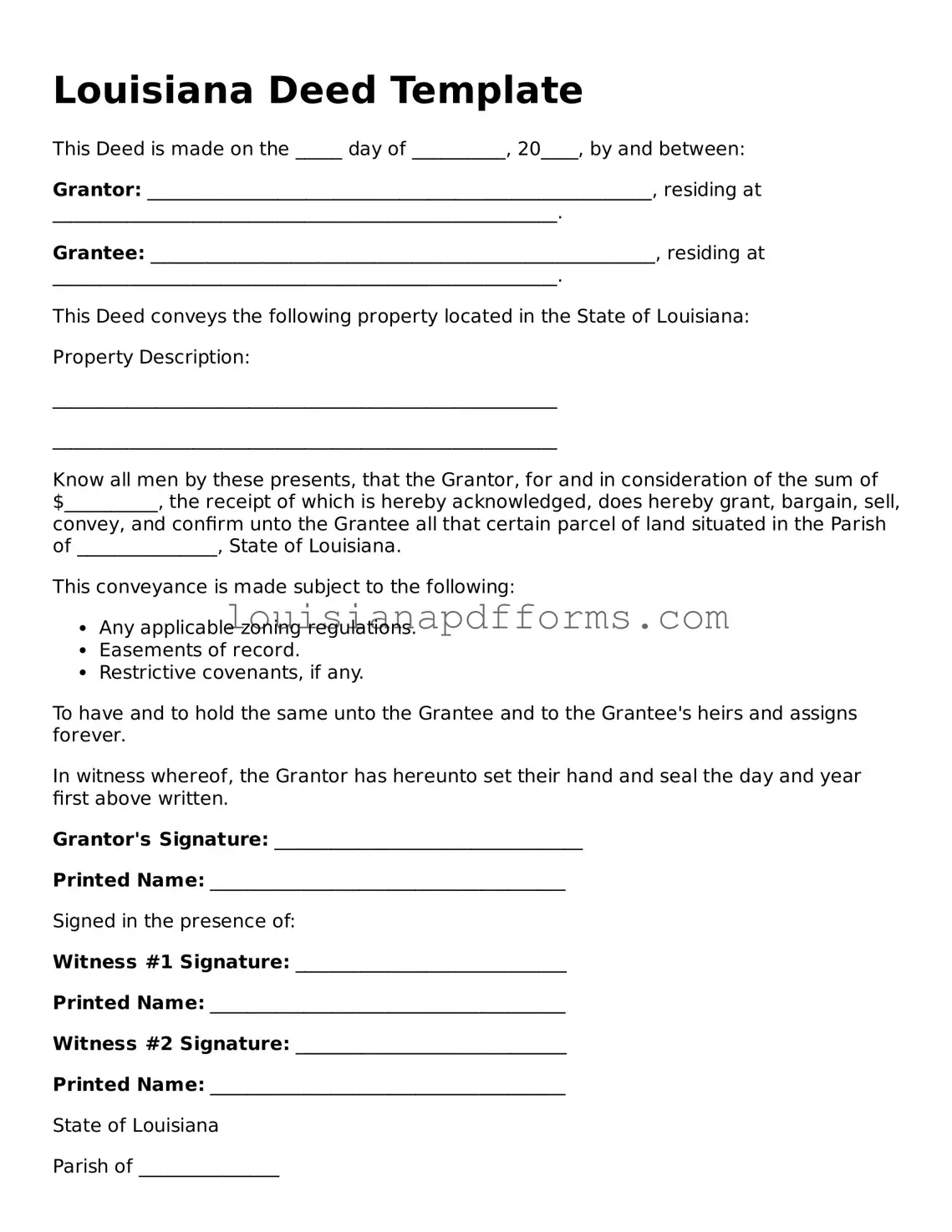Louisiana Deed Form
A Louisiana Deed form is a legal document used to transfer ownership of real property from one party to another. This form outlines the details of the transaction, including the names of the parties involved and a description of the property. Understanding how to properly complete and file this form is essential for ensuring a smooth transfer of ownership.
Access My Document Now

Louisiana Deed Form
Access My Document Now

Access My Document Now
or
Free Deed
You’re halfway through — finish the form
Edit, save, and download your completed Deed online.